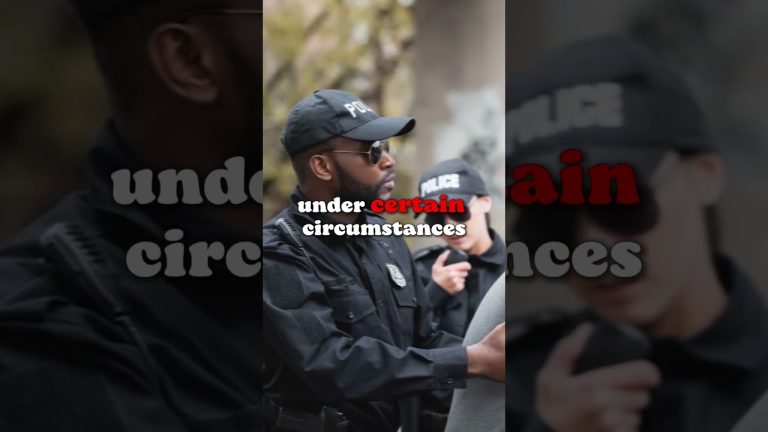Blog
The Power of Legal Guidance in Securing a Successful Expungement

A criminal record can be a heavy burden, casting a shadow over your future long after you’ve paid your dues. Whether you’re applying for a job, seeking housing, or pursuing educational opportunities, the stigma of a criminal record can close doors before you even have a chance to walk through them. The good news is that under Texas law, certain criminal records can be cleared through expungement or sealed through non-disclosure orders, offering you a genuine opportunity to start fresh.
However, navigating the complex legal landscape of expungement and non-disclosure in Texas is far from simple. The process involves intricate eligibility requirements, strict procedural rules, and precise legal filings that can make or break your case. This is where professional legal guidance becomes not just helpful, but essential. Let’s explore how working with experienced attorneys can transform your journey toward a clean slate and why this decision could be one of the most important investments you make in your future.
Understanding the Difference Between Expungement and Non-Disclosure
Before diving into the benefits of legal representation, it’s crucial to understand what you’re actually seeking. In Texas, there are two primary methods for dealing with criminal records: expungement (also called expunction) and non-disclosure orders. Each serves a different purpose and comes with distinct eligibility requirements.
Expungement is the complete erasure of your criminal record. Once granted, it’s as if the arrest or charge never happened. All records and files related to the arrest are destroyed, including law enforcement documents, district attorney’s office records, and court transcripts. After an expungement, you’re legally permitted to deny that the arrest ever occurred, even on job applications.
Non-disclosure orders, on the other hand, seal your record rather than erase it. While the general public, including most employers and landlords, cannot access sealed records, certain government agencies and law enforcement can still view them. Non-disclosure is typically available to those who completed deferred adjudication probation, whereas expungement generally requires that charges were dismissed or you were found not guilty.
Why Professional Legal Guidance Makes All the Difference?
There are several factors that lead to taking professional help. Here is how professional legal help can make a difference in an expungement case:
Navigating Complex Eligibility Requirements
Determining whether you qualify for expungement or non-disclosure is rarely straightforward. Texas law contains numerous exceptions, waiting periods, and specific conditions that must be met. For instance, certain offenses like murder, sexual assault, and family violence crimes are automatically disqualified from non-disclosure. Additionally, if you have other convictions on your record, they may impact your eligibility for clearing a different charge.
An experienced attorney can thoroughly review your criminal history and assess which charges might be eligible for expungement or non-disclosure. They understand the nuances of Texas law and can identify opportunities you might miss on your own. This expertise is particularly valuable because attempting to file for expungement when you’re not eligible wastes time, money, and emotional energy.
Understanding Critical Waiting Periods
Texas law imposes specific waiting periods before you can file for expungement or non-disclosure, and these vary depending on the type of offense. For Class C misdemeanors, you must wait at least 180 days. For Class A and B misdemeanors, the waiting period extends to one year, while most felonies require a three-year wait before you can file for expungement.
Non-disclosure waiting periods are similarly complex. For misdemeanors, you may be eligible immediately after completing deferred adjudication or must wait two years, depending on the specific offense. Felonies typically require a five-year waiting period after discharge and dismissal.
Proper Preparation and Filing of Legal Documents
The petition for expungement or non-disclosure must be filed in the correct court with precise information about your arrest, the outcome of your case, and why you meet the eligibility criteria. Any errors or omissions in these documents can lead to delays or outright denial of your petition.
Professional attorneys know exactly what information must be included, how to format the documents properly, and which supporting materials to gather. They ensure that every detail is accurate and that your petition presents the strongest possible case for clearing your record. This attention to detail significantly increases the likelihood of a successful outcome.
Representation at Court Hearings
After filing your petition, the court will schedule a hearing where both you and the prosecutor’s office can present arguments. This hearing is your opportunity to demonstrate why you deserve to have your record cleared. However, it’s also where opposition may arise. Prosecutors sometimes contest expungement petitions, particularly for certain types of offenses.
Having an attorney represent you at this hearing is invaluable. They know how to present your case persuasively, address any concerns raised by the prosecution, and argue effectively on your behalf. Their courtroom experience and familiarity with local judges and procedures can make a substantial difference in the outcome.
The Timeline and What to Expect
Understanding the timeline for expungement or non-disclosure helps set realistic expectations. In Texas, the expungement process typically takes about 30 days to schedule a hearing after filing the petition. The entire process usually spans four to six weeks from filing to decision. If the court grants your expungement, it can take up to 180 days for local, state, and federal agencies to destroy their records completely.
For non-disclosure orders, the timeline varies. Once you file the petition in the court where your case was originally heard, the clerk notifies the state prosecutor, who has 45 days to request a hearing. If all requirements are met and no opposition is raised, the judge should grant the order.
The Life-Changing Benefits of a Clean Record
Successfully expunging or sealing your criminal record opens doors that may have been closed for years. Employment opportunities expand dramatically when you’re no longer required to check the box indicating a criminal history. Housing applications become less stressful, as landlords won’t discover past arrests or charges during background checks. Educational opportunities, professional licenses, and even loan applications all become more accessible.
Beyond these practical benefits, there’s an emotional and psychological relief that comes with clearing your record. The constant worry about your past being discovered dissipates. You can move forward with confidence, knowing that you’ve truly left that chapter of your life behind.
Final Thoughts
Clearing your criminal record is more than just a legal procedure. It’s an investment in your future and a chance to reclaim the opportunities you deserve. With the right legal team by your side, the path to expungement becomes clearer and more achievable. L & L Law Group guides you through every step of this life-changing process. Take control of your future today and start the journey toward a clean slate.










